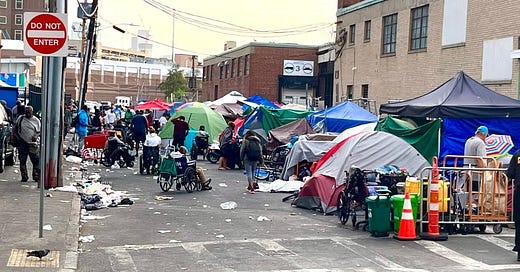Boston’s Mass and Cass Crisis: City Admits Failure as Neighborhoods Challenged with Spillover
Residents Demand Action as Wu Administration Faces Criticism Over Unchecked Drug Activity
In a recent admission that has sparked significant discussion across Boston, a senior official in Mayor Michelle Wu’s administration acknowledged that the city’s strategy to address the open-air drug market at the intersection of Massachusetts Avenue and Melnea Cass Boulevard, commonly referred to as Mass and Cass, has not achieved its intended goals. This concession comes in the wake of persistent complaints from residents who describe the spillover effects of drug-related activities into surrounding neighborhoods as increasingly unmanageable. The situation at Mass and Cass, a longstanding epicenter of substance use and homelessness in the city, has drawn attention for years, with community members and policymakers dealing over how to balance public health, safety, and compassion in addressing the crisis.
The acknowledgment of the plan’s shortcomings marks a pivotal moment for the Wu administration, which has faced mounting pressure to deliver tangible improvements in an area plagued by addiction, overdoses, and related social challenges. Residents in nearby neighborhoods, including the South End, Roxbury, and parts of downtown Boston, have voiced frustration over what they perceive as a lack of progress, citing daily encounters with discarded needles, public drug use, and aggressive behavior. These concerns have fueled a broader debate about the efficacy of the city’s approach, the role of law enforcement, and the deeper systemic issues contributing to the persistence of the crisis.
Keep reading with a 7-day free trial
Subscribe to Chester Tam Substack to keep reading this post and get 7 days of free access to the full post archives.




